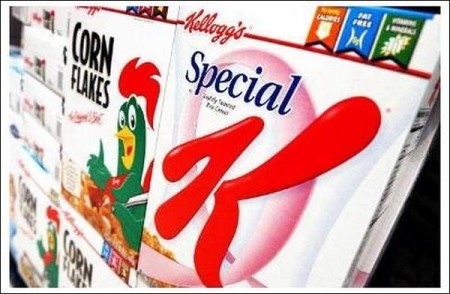Quinoa Chips
This new-to-the-scene snack food features all the buzzwords that make it sound like the ultimate healthy snack: It’s a superfood! And gluten-free! There’s protein and fiber! The problem: They’re basically corn chips with a little quinoa thrown in, says Kelly Schmidt, a nutritionist and blogger at Paleo Infused Nutrition.
And the quinoa itself has been so highly processed that it’s lost the nutritional boost that made it healthy in the first place. Need proof? Just compare the stats of one cup of cooked quinoa (8g protein, 5g fiber) to one serving of quinoa chips (1g protein, less than 1g fiber)—and then listen to your stomach make noise because it’s still going to be hungry.
Microwaveable Popcorn
Nutritionists always say popcorn is a healthy snack, and it is, so long as it’s made right. “The microwaveable kind has cancer-causing chemicals in them,” explains Palanisamy. One is called PFOA, which the EPA says is likely a cancerous carcinogen that’s found in the plastic of the bag. The other is in the butter flavor, and it’s known as diactyl, an organic compound that’s been linked with breathing issues and lung disease, thus making “popcorn lung” a real—and serious—health concern.
Fat-Free Cheese or Greek Yogurt
The obsession with low- and no-fat products we had in the ’90s still lingers, but reaching for them isn’t better than grabbing the full-fat kind. Researchers found that people who ate full-fat dairy tend to have lower body weight, less weight gain, and a lower risk of obesity compared to those who continued the fad.
They think it’s likely because when you remove fat from dairy, you also strip away beneficial fatty acids that can help you feel full, so you end up eating more in the long run. Plus, a lot of people opt for flavored yogurt, which has tons of sugar that, once again, put your blood sugar on a crazy roller coaster ride.
Pretzels
These salty bites may sound like a smart snack since they’re lower in fat and calories than potato chips, but they actually won’t do your waistline any favors. “They don’t contain any nutrients,” says Palanisamy. “They’re basically all carbs and loaded with sodium,” so they’ll put your blood sugar on a roller coaster ride, spiking your levels sky-high only to make you hungry as soon as it drops back down.
Vegetable Chips
Chips made with sweet potato, beets, or parsnip—those ought to be healthy, what with vegetables being the primary ingredient and all. But Palanisamy says they’re pretty high in fat—around 9g per serving—and it’s not the good kind. The oils used range from canola to sunflower or safflower, all of which contain omega-6 fatty acids, which promote inflammation that’s been linked with autoimmune diseases, heart disease, cancer, insulin resistance, and weight gain. Plus, the whole reason you’re eating them—because you want those good-for-you nutrients from the veggies—is a farce. Palanisamy says the chips have been stripped of those benefits, and they provide no protein and little-to-no fiber.
Rice Cakes
These have the perpetual stigma of being a smart, low-cal “diet food,” and sure, they’re not the worst idea in the world. “Rice cakes can make a good snack for people who are transitioning toward a gluten-free diet if it’s a smart health decision for them to do so,” says Schmidt. But since they’re high in carbs, they’re high on the glycemic index, and a recent study found a potential link between high-glycemic foods and lung cancer. Not to mention high-glycemic foods tend to cause your blood sugar to spike, then crash, which makes you hungry all over again shortly after you snack.
Cereal
The breakfast staple usually plays a major role in taming mid-afternoon hunger because it’s fast, convenient, and you can eat it straight from the bag. But therein lies the danger—it’s super easy to eat a reasonable portion, and then some more, and more after that.
Then you’ve blown over 200 calories on an unsatisfying snack, because most of the time it’s made from refined grains that aren’t rich in nutrients, says Palanisamy. Another problem: Boxes tout being “high in fiber,” but it’s usually insoluble fiber that’s been shown to cause irritation in the gut, bloating, and other GI issues, he adds. Healthier, soluble fiber is what you find in foods like barley or beans.
Popped Chips
Sadly, “popping” chips instead of baking or frying them doesn’t make much of a nutritional difference, says Palanisamy. Yes, they slash the fat content in half compared to regular potato chips, but they don’t offer any micronutrients, like vitamins and minerals, and their paltry fiber and protein quotas (1g of each)—not to mention calorie count—is comparable to what you find in a serving of the regular stuff.
100-Calorie Snacks
Seems like a genius idea: Grab a bag and you have a pre-portioned, calorie-conscious snack at your convenience for those times you’re craving dessert. But you’re better off grabbing a more caloric snack that has tons of nutrients to actually keep you full. “When you’re eating a small 100-calorie bag of cookies or crackers, you’re not really getting what you want,” says Schmidt. And that makes you much more likely to reach for another, and another, and another.
Views: 461



